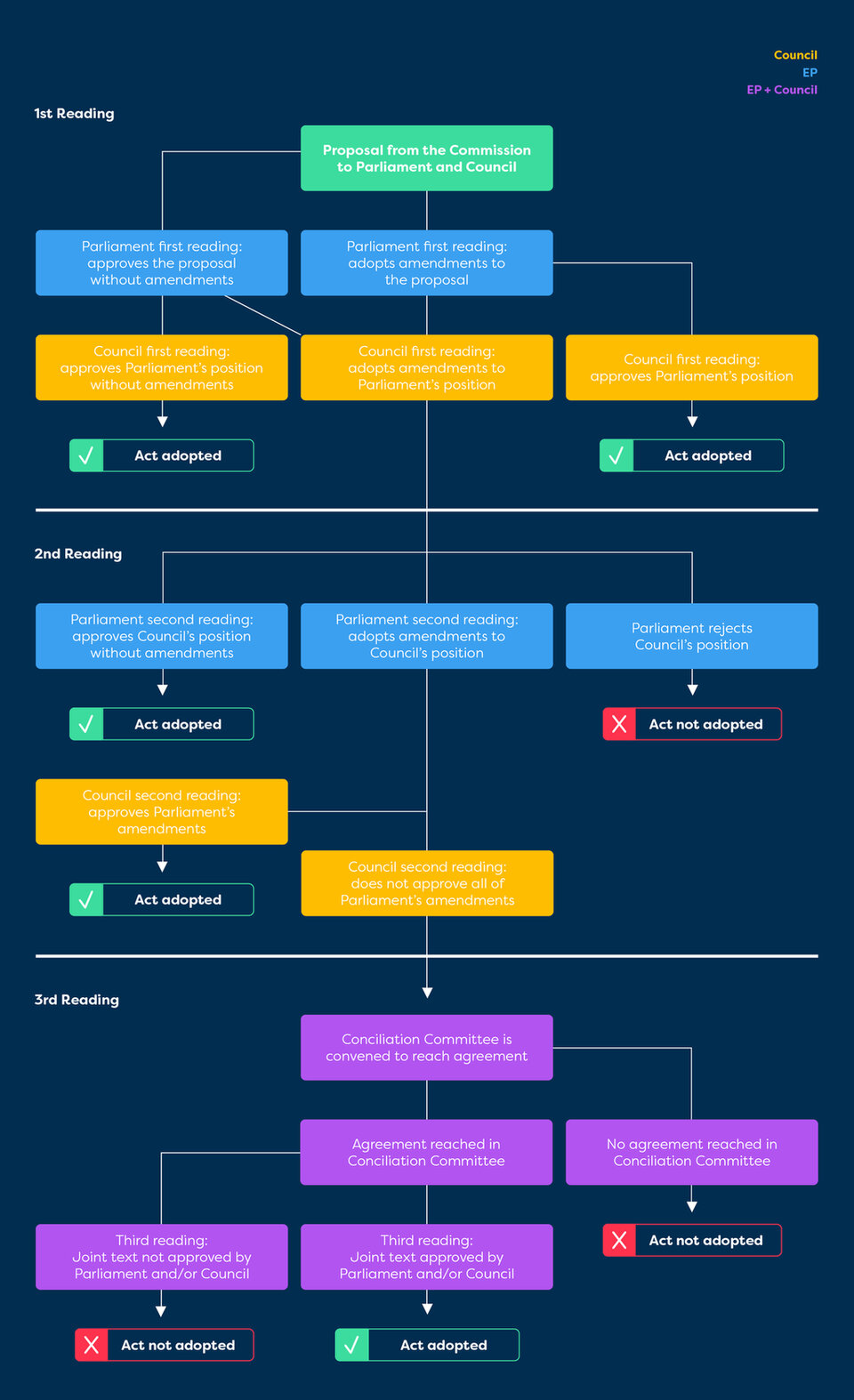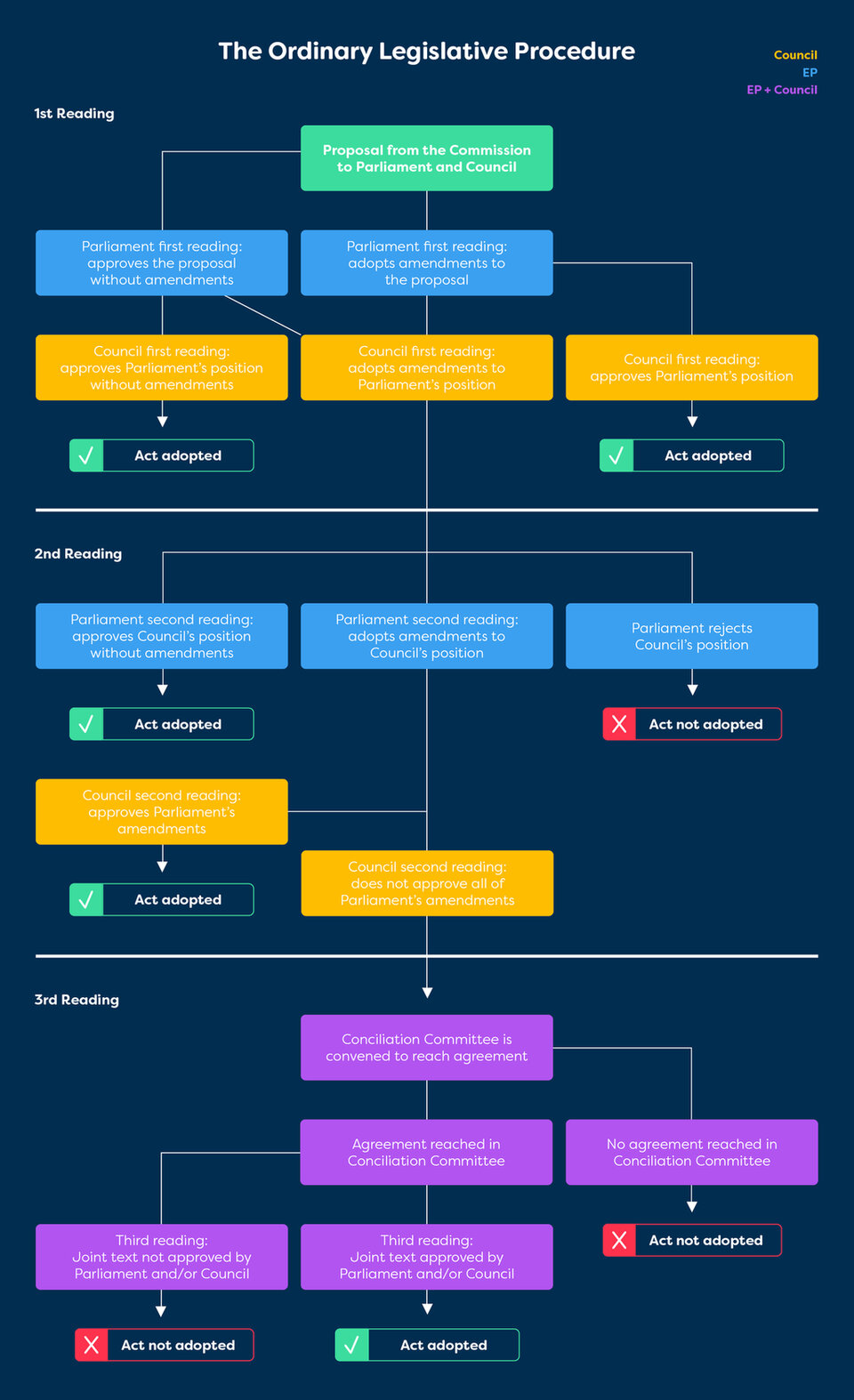Why
should you care about the EU?
Mariska Neefjes tells us why
Mariska Neefjes is one of the EU-advisors to the Dutch parliament. She is responsible for the commission concerning Agriculture, Nature and Food quality. “The informal process in Brussels is just as important as the formal one.”

Mariska Neefjes
EU advisor LNV and strategic project coordinator at the House of Representatives of the States General
EU-advisor to the Dutch parliament, what does that entail?
“It means that I advise all the spokespersons on agriculture from the different political parties, both on process as on substance. That means writing analysis on European legislation, forcefield analysis on a specific proposal and for instance advising the parliament on how they can most effectively influence the process in Brussels.”
How does a normal workday look for you?
“One moment I might be on the phone with a legislative assistant or a member of parliament to answer questions about an EU-legislation, the next I will be writing a memo for members to analyze a new proposal. Now and then I spend the day in Brussels. Parliament is a dynamic place to work. After elections, everything can be different, for example. Add the Brussels bubble to that and no day is the same.”
What was a special or busy moment in the past year?
“The decision-making-process around the Nature Restoration Law in the past few weeks was (and is) quite unusual. Amongst others, the Netherlands changed positions in the final stage of the decision making. Normally this is considered a formality, but because of this, the whole proposal is staggering. This means that all of a sudden, more than usual, I am actively advising members of parliament and am in contact with other parliaments to find out the positions in other countries. This way, I can accurately show which majorities and minorities are coming together. Very interesting, but very hands on as well.”
What is the most important thing to understand about the European Union and how it works?
“On a professional level: the earlier in the legislative process you try to influence it, the more chance of success. You should be at the table when proposals are announced, to share your ideas. When European law is implemented on the national level, you are way too late. And: the informal process in Brussels is just as important as the formal one.”

The earlier in the legislative process you try to influence it, the more chance of success. You should be at the table when proposals are announced, to share your ideas.
Why should people care about the upcoming European elections?
“We just had national elections in the Netherlands which changed the composition of the parliament a lot. This could also happen at the EU level. A new political reality also means new political priorities. Will there be an ambitious climate policy, or will the Green Deal be delayed? Are we moving towards more cooperation on the military in Europe? Big questions like this are on the line this election. And the influence of European policy on the Netherlands is big. We saw it on the news. Think of the sanctions because of Ukraine, more willingness to cooperate on foreign policy and security, a European Nature Restauration Law, the loss of derogation on manure policy. The results of the election will have a big impact on Dutch citizens and on Dutch companies.”
What do you expect of the results and what will they mean for your job?
“Polling is still volatile, so it is difficult to predict. A lot could happen in the coming months. As EU advisors, we are compiling an overview of all the election manifestos for the members of Parliament. That way we can easily draw conclusions on possible effects of the results of the elections. Our role will be the same in the coming years.”
Arturo explains

Arturo Esclarín Ortiz
Senior consultant and team leader Public Affairs
Now that you know why you should care about the EU, you might wonder how it operates and what lies ahead after the elections. One thing is certain: June and July will be hectic months in Brussels. After the elections, the negotiations will start. Then, two more rounds of elections will start.
16 July: The constitution of the political groups
After the elections, the negotiations for the constitution of the political groups will start. To make it very concrete: parties will form a fraction together. Before the first plenary session, starting on July 16th, political groups have to notify the President of their names, political declaration and composition.
16 – 19 July: Elections for the EP President, the 14 Vice-Presidents and the 5 Quaestors and Committees composition
You might think: will there be elections after the elections? It may seem weird, but the answer is yes. During the constituent plenary session, newly elected Members of Parliament will vote for the European Parliament’s President, Vice-Presidents and Quaestors. During this session, Members of Parliament will also vote on the numerical composition of Parliament’s standing committees and subcommittees.
The week after this session, the committees will hold their first meetings to elect their respective Chairs and Vice-Chairs.
16 – 19 September: Elections of the President of the European Commission
Not only the European Parliament will hold another round of elections: the European Commission will also appoint a President for the European Commission. According to the Treaty of the European Union, the European Parliament shall elect the candidate proposed by the European Council. Setting aside the spitzenkandidat issue, it is likely that the appointment will occur during the first plenary session after the summer recess. This is scheduled between 16 and 19 September. During this session, the proposed candidate will present their political guidelines, which will be subject to debate. The President of the European Commission will be elected by a majority vote of the chamber, requiring 361 out of 720 MEPs.
The last quarter of 2024
After the Commission’s elections, the Council, along with the newly elected Commission President, selects the Commissioners-designate. Each Commissioner-designate represents one Member State and is given a specific policy area by the Commission President. After that, the relevant committees of the European Parliament evaluate each Commissioner-designate before a full chamber vote on the appointment of the entire College. This evaluation process is scheduled to occur during the fourth quarter of 2024.

